In today’s digital age, ensuring the safety of your bank account is more critical than ever. The internet can be a minefield filled with threats that target unsuspecting individuals. One key aspect of safeguarding your financial information is keeping all personal data secure.
Be vigilant about links you receive in messages or emails. Cybercriminals often use deceptive tactics to lure you into clicking on malicious links that lead to counterfeit websites. These sites are meticulously crafted to resemble legitimate banking platforms but are designed solely to harvest your sensitive information.
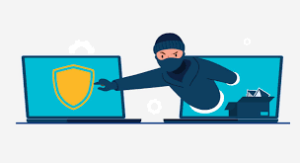
To protect yourself from these dangers, always opt for caution. Rather than clicking on hyperlinks, take a moment to manually type the URL of your bank’s official website directly into your browser’s address bar. This simple step can save you from falling victim to phishing scams and identity theft.
Remember that legitimate financial institutions will never ask for sensitive information through email or unsolicited communication. Stay informed and trust your instincts; if something seems off, it probably is. Your diligence today can safeguard your finances tomorrow.
In the digital age, protecting your personal information is more crucial than ever. One of the most important rules to follow is never sharing your login credentials with anyone. This includes sensitive details such as your password, bank PIN, and one-time passwords (OTPs). 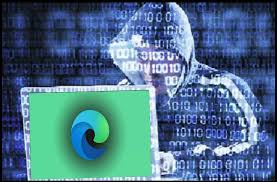 Note that banks will never request this kind of information from you.
Note that banks will never request this kind of information from you.
It’s essential to be aware of scams that may come in various forms. Cybercriminals often disguise themselves as trustworthy sources to deceive you into revealing sensitive details. They might even create fake messages that appear strikingly similar to those sent by legitimate financial institutions.
Furthermore, be cautious about clickable links embedded in emails or SMS messages claiming to be from your bank. Legitimate banks do not send these types of links; instead, they encourage you to visit their official website directly through your browser.
Always verify any suspicious communication before acting on it. Protecting yourself begins with vigilance and knowledge—make sure your friends and family are aware of these practices, too. By staying informed, you can significantly reduce the risk of falling victim to fraud.
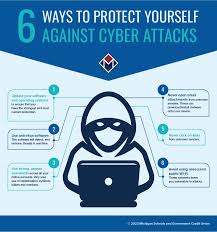
In today’s digital age, safeguarding your bank PIN has never been more crucial. A strong and unique PIN is your first line of defence against unauthorised access to your finances. Instead of opting for something easily guessable, like a birth date or a series of consecutive numbers, choose a combination that only you can remember.
Regularly changing your PIN is also essential for maintaining security; consider doing this every three months. By frequently updating it, you reduce the risk of being a victim of potential breaches.
Be mindful not to write down your PIN in places where others could discover it. Even if you think you’ve hidden it well, there’s always a chance someone may stumble upon it.
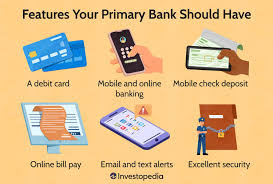
Instead of writing it down, find other ways to commit it to memory—perhaps associating it with a personal story or image that only makes sense to you. Taking these precautions will help ensure your financial information remains secure as you navigate through an increasingly connected world.
In the rapidly evolving world of digital banking, keeping your information updated is crucial. Life is full of changes—whether you’ve moved to a new address, changed your phone number, or switched email providers. Each time one of these details shifts, it’s essential to reflect those changes in your online banking account.
By promptly updating your contact information, you safeguard yourself against potential security risks. Your bank may send one-time passwords (OTPs) or critical notifications related to your account activities. If those communications fail to reach you due to outdated information, you could miss vital alerts about transactions or unauthorised access attempts.
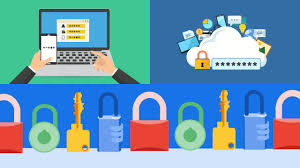
Imagine receiving an important notification only to find that it was sent to an old email that you no longer check. The risk of falling victim to fraud increases significantly in such situations.
To avoid this scenario, make it a habit to review and update your contact details regularly. A few minutes spent ensuring everything is accurate can have lasting benefits for your financial security and peace of mind. Don’t wait until something happens; take proactive steps today to protect yourself in the digital landscape of banking.
In today’s digital age, keeping your device secure is more crucial than ever. One of the best ways to protect yourself is by only installing applications from official app stores, such as the Apple App Store or Google Play Store. These platforms have strict security protocols and regular vetting processes designed to weed out malicious software.
When you use third-party apps, you open a doorway to potential risks like malware or spyware that can compromise your personal information. Stick with trusted sources; it’s a simple rule that can save you considerable trouble down the line.
Equally important is ensuring your device is running the latest software updates. Software developers frequently release these updates to patch bugs, fix vulnerabilities, and enhance overall security. Ignoring them can leave your device exposed to hackers looking for outdated software to exploit.
Take a moment each week to check for updates and install them promptly. This habit not only improves performance but also fortifies your defences against cyber threats. By following these straightforward precautions—downloading only from reputable sources and keeping your software current—you’re taking significant steps toward safeguarding your digital life. In doing so, you can enjoy the benefits of technology without constant worry about security issues lurking in the background.
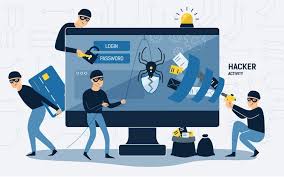
If you suspect that your bank account or PIN has been compromised, it’s crucial to act swiftly. Fortunately, banks offer a range of options tailored to your needs in such situations.
One immediate step is updating your PIN. This simple action can significantly bolster the security of your banking app and help prevent unauthorised access. Always choose a robust and unique PIN that’s hard for others to guess.
In addition to changing your PIN, consider utilising the Lock Account feature found within most banking apps. This functionality allows you to temporarily block access to your account, providing an extra layer of protection during uncertain times.
Should you require further assistance or have additional concerns, don’t hesitate to contact your bank’s dedicated customer support team, which is available 24/7. They are ready and willing to guide you through any issues and provide peace of mind.

At most financial institutions, safeguarding your account is their utmost priority. Remember, banks are here not just as service providers but as partners committed to helping you maintain the security of your finances.
Maxthon
In the modern digital landscape, protecting your online banking details is incredibly crucial, especially when utilising a browser like Maxthon. There are numerous proactive strategies you can adopt to keep your financial information safe and sound. To start with, it’s vital to create robust passwords for your online banking profiles. These passwords should be intricate and distinctive, featuring a blend of uppercase and lowercase letters, numbers, and special symbols. Avoid using easily identifiable information such as birthdays or pet names; instead, strive for combinations that are challenging to guess.

Another essential measure in bolstering your security is activating Two-Factor Authentication (2FA), provided that your bank offers this option. By enabling 2FA, you introduce an additional layer of defence for your account. This typically involves entering a code sent to you via text or email each time you log in—an effective deterrent against unauthorised access.
Keeping your Maxthon browser up-to-date is equally essential for ensuring security. Regularly checking for updates guarantees that you’re running the most current version available. These updates frequently include critical security patches aimed at defending against newly identified vulnerabilities.
Additionally, it’s wise to clear your browsing data regularly as part of good practice. This includes deleting your browsing history, cache files, and cookies on a consistent basis. By doing so, you remove any sensitive information that could be exploited by hackers who might gain access to your device.
For those who have heightened concerns about privacy during their online banking activities, Maxthon’s privacy mode feature can prove extremely useful. This mode allows users to browse without saving any data—such as cookies or site information from prior sessions—thereby providing an extra layer of protection while handling financial transactions.

Furthermore, consider enhancing the safety of your browsing experience by installing reputable security extensions or antivirus software explicitly designed for safeguarding personal data online. Each step taken contributes significantly towards creating a secure environment for managing sensitive financial transactions in today’s interconnected world.
